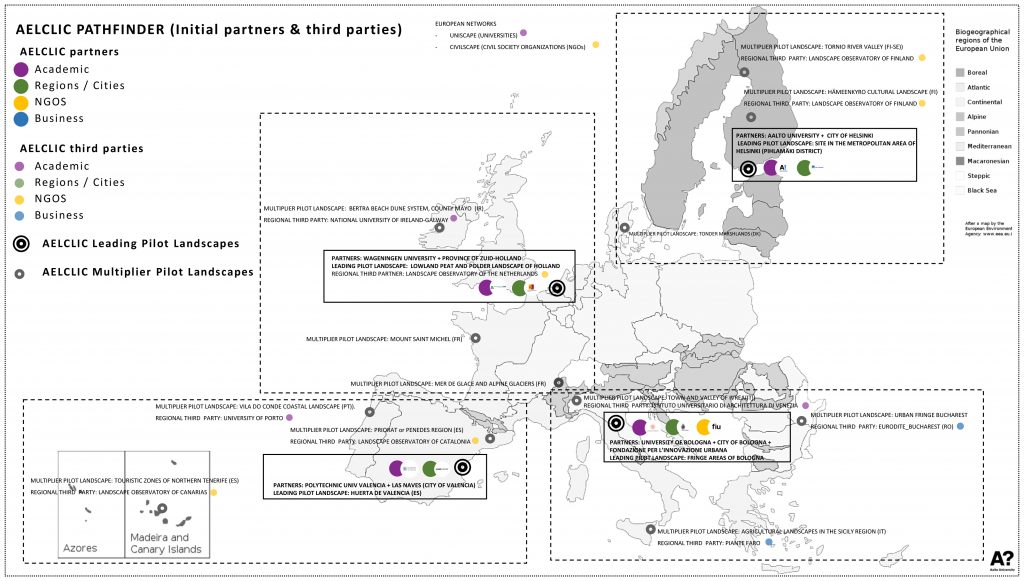GOAL: The AELCLIC-PATHFINDER will define, test and disseminate proactive and catalyzing models for the configuration of regional/local consortia with the social, financial, administrative and technical capacity to co-define in the future Landscape Adaptation Plans to Climate Change (LACAPs hereafter). A LACAP would include regional/local policies, strategies, pilot actions and initiatives to promote Climate Change adaptation and mitigation.
DEMAND: There is an increasing demand for new regional/local planning models to align agendas and visions of the stakeholders involved in the management, adaptation, and transformation of the landscape, both in rural and urban areas as well as in transitional spaces. This issue is site-specific and requires the co-definition of collaborative governance models supporting, guiding and coordinating bottom-up and top-down initiatives from landowners, land users, economic actors, authorities and NGO’s.
ACTION AND IMPACT: The AELCLIC project will promote vertical and horizontal models of governance supporting clear actions, joint commitments, and a catalyzing effect. These considerations will guide the definition of actions and pathways in each AELCLIC Pilot Landscapes as well as the dissemination of results.
OUTCOME: The final outcome of the AELCLIC-PATHFINDER will be a set of regional/local Consortia in a strategically selected group of Pilot Landscapes covering the climatic, socio-economic, cultural and biogeographical diversity of Europe. By the end of the process, the members of each Consortium would confirm their commitment and resources to advance in the production of LACAPs on the base of the agreed agendas and goals.
USERS: The final users of the results will firstly be the regional/local communities where the Consortia will be defined as a result of the project. Secondly, other regions and municipalities will benefit from the produced concepts and adapt them to their own conditions. In terms of end-users, the project mainly aims at regional/local authorities, NGOs, businesses, and entrepreneurs, supported by research institutions. This aim has guided the incorporation of partners and third parties in the AELCLIC project (file #5). Further identification and involvement of local economic actors and NGOs will take place in each local/regional Consortium during the implementation of the project
APPROACH: The AELCLIC project will include 4 tandems of Universities and Regional/Local Authorities (all CLIMATE-KIC Partners) promoting the development of Consortia in a set of Leading Pilot Landscapes. The planning concepts generated in those Leading Pilot Landscapes will be tested and adapted in a set of Multipliers with the support of regional/local third parties. In addition, the participation of some European Networks as third parties (UNISCAPE & CIVILSCAPE) will facilitate a critical revision of the transferability/scalability of the results and will provide a solid platform for dissemination and scalability

